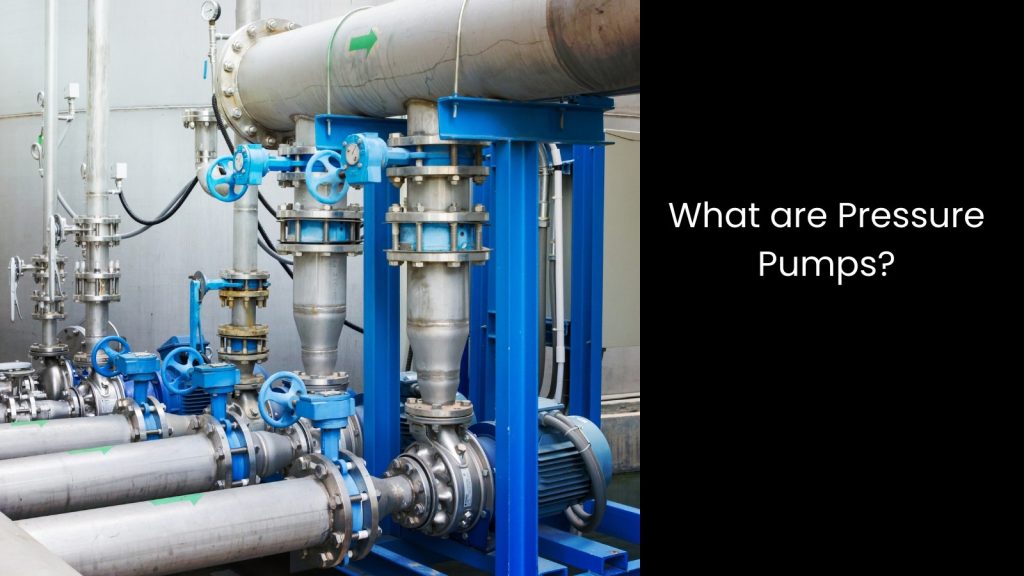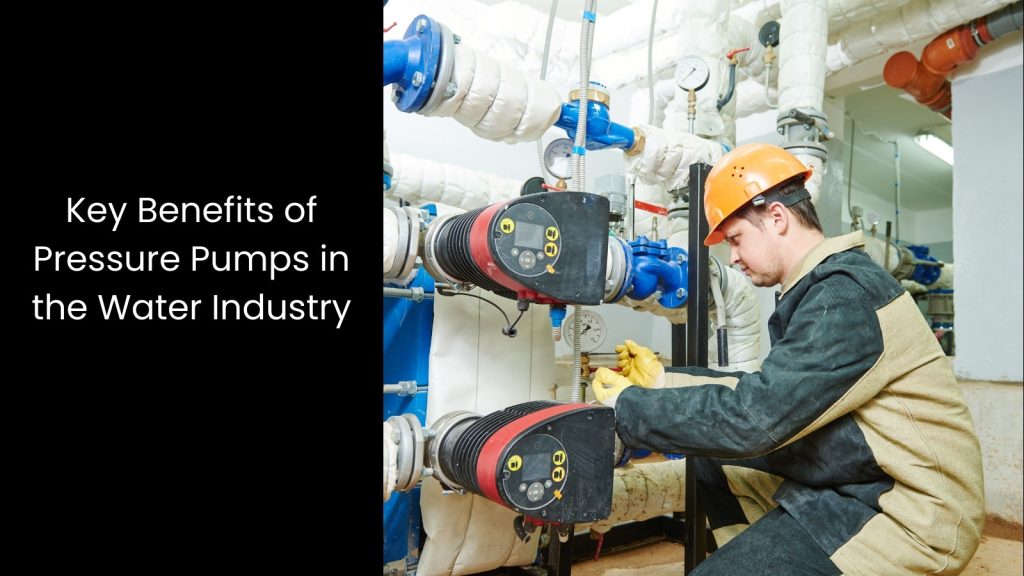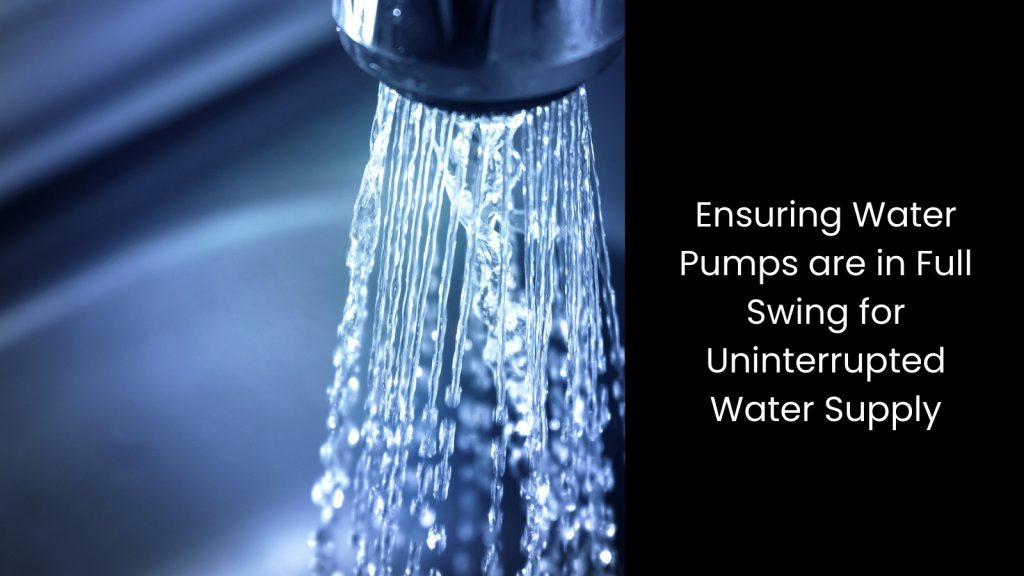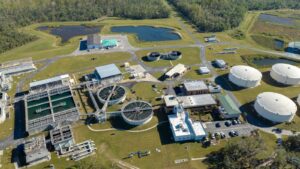If you look into the water supply in Australia, you can clearly see that it has undergone a drastic transformation over the last decade. With the emergence of new components like pumps, compressors, and valves, the distribution of water has been scaled up as fast as an arrow. Pumps are one element that the water industry in Australia cannot survive without. Bearing a lot of pressure inside of them, pumping networks contribute to the productive water distribution network.
This article is all about the benefits of pressure pumps in the water industry in Australia.
What are Pressure Pumps?

- These are sort of regular pumps but with a focus on balancing the pressure within them. This means that these pressure pumps are devices used to increase the pressure of water in plumbing systems.
- They work by drawing water from a source, such as a well or a municipal water supply, and then pressurising it before delivering it to its destination, like faucets, showers, or irrigation systems.
- If we look at the structure of these pumps, they usually consist of a motor, an impeller, and a housing.
- If further explained, the motor powers the impeller, which spins rapidly, creating suction that pulls water into the pump. As the water passes through the pump, the impeller increases its pressure, ensuring a steady and strong flow.
- What are the real-life applications of them? Pressure pumps are essential in areas with low water pressure or in situations where water needs to be distributed over long distances or to higher elevations.
- Plus, they play a vital role in maintaining a consistent water supply and efficient water usage in both residential and commercial settings.
Key Benefits of Pressure Pumps in the Water Industry

Reducing Water Wastage
Pressure pumps in the water industry help reduce water waste by providing better control over water pressure. These pumps minimise waste due to leaks and overflows because they ensure consistent pressure throughout the plumbing system.
When water pressure is steady and reliable, it is delivered efficiently to where it is needed most, such as faucets, showers, or irrigation systems. This reduces overall waste by preventing excess water from being lost due to leaks or overflowing pipes.
In addition, pressure pumps play a crucial role in preventing water from being wasted during peak usage times when demand is high. With their ability to maintain optimal pressure levels, these pumps ensure that water is used efficiently, helping to conserve this precious resource.
This is why these have become one of the main elements that are a must-have in the water supply asset networks. In one way, pressure pumps contribute significantly to reducing water waste in the water industry. In another way, it provides controlled and consistent water pressure throughout the system, thus minimising the potential for leaks and overflows.
Energy Efficiency
When there is high pressure, it tends to use more energy. If the authorities cannot control this energy consumption, there will be energy waste. Pressure pumps in the water industry contribute to energy efficiency by being designed to consume less energy overall.
Modern pressure pumps are specifically engineered to be energy-efficient, meaning they use less electricity or other energy sources compared to older models. One key feature that enhances their efficiency is their ability to vary their speed. Variable-speed pumps, in particular, can adjust their operating speed to match the demand for water, whether it is high or low.
Due to their ability to automatically regulate their speed, these pumps optimise energy usage. This means it will ensure that only the necessary amount of power is consumed to meet the current water demand. This not only reduces energy waste but also lowers utility costs for users.
As they incorporate such energy-saving technologies, pressure pumps contribute to sustainability efforts by conserving energy resources and reducing the carbon footprint associated with water distribution systems. Not to mention that the energy efficiency of pressure pumps plays a vital role in promoting sustainable water management practices in the industry.
Enhancing Water Pressure
These pumps specifically cater to one major requirement. That is taking control over the pressure within it.
This indicates that it has the capacity to increase water pressure in residential, commercial, and industrial areas, guaranteeing a steady and forceful flow of water. This feature is particularly advantageous in buildings with multiple floors or locations where natural water pressure is low.
As the latter can boost water pressure, pressure pumps ensure that water reaches its destination with sufficient force. No matter what the application is, it paves the way for effective usage of faucets, showers, and other water outlets. In multi-story buildings, where water needs to be transported to higher levels, pressure pumps ensure that water flows smoothly and consistently, overcoming the limitations of gravity and natural pressure.
Additionally, in areas with low natural water pressure, pressure pumps compensate for the deficiency, ensuring that users receive adequate water pressure for their daily needs.
So as you can see, pressure pumps contribute significantly to improving water pressure, enhancing the efficiency and convenience of water usage in various applications within the water industry.
Improving Water Supply Reliability
These assets play a key role in ensuring consistent pressure throughout the plumbing system. Did you know this?
As you know, it can actually maintain steady pressure, which is its main objective. With this capability, pressure pumps guarantee a reliable water supply even during periods of peak demand. This reliability is essential for meeting both everyday water needs and addressing emergency situations effectively.
During times of high demand in an area, such as mornings or evenings when many people are using water simultaneously, pressure pumps ensure that water is delivered consistently to all users without interruptions or fluctuations in pressure.
This prevents situations where the water supply might become inadequate or unreliable, ensuring that users can access water whenever they need it. Moreover, in emergency situations such as firefighting or natural disasters like wildfires, which are not very rare in Australia, reliable water supply becomes critical. In scenarios like this, pressure pumps ensure that water is available at the required pressure levels to address these situations promptly and effectively.
It is true that they contribute significantly to improving the reliability of water supply, enhancing the overall efficiency and resilience of water systems in the industry.
Securing Plumbing Systems
These pumps prevent the wear and tear caused by irregular pressure surges and drops, which can damage pipes, fixtures, and appliances connected to the water system, when it ensures that water pressure remains steady and within the desired range, pressure pumps minimise the stress on plumbing components, thus extending their lifespan.
Without pressure pumps, fluctuations in water pressure could lead to issues such as pipe bursts, leaks, or damage to appliances like water heaters or washing machines.
Since the latter can provide consistent pressure, pressure pumps help to safeguard the integrity of plumbing systems. This reduces the risk of costly repairs and replacements. This not only saves money but also ensures that water distribution remains efficient and reliable.
Therefore, it is a fact that pressure pumps play a vital role in securing plumbing systems by maintaining optimal pressure levels. Enhancing the longevity and functionality of the entire water infrastructure is another plus point.
Ensuring Water Pumps are in Full Swing for Uninterrupted Water Supply

As you can see, employing pressure pumps in the water industry aids in taking control of the pressure flow inside of them, which is a necessity in the water supply infrastructure. However, in order to do so, the authorities have to ensure the pressure pumps are working at their best. This is where you need to employ robust technology from a reputed supplier.







